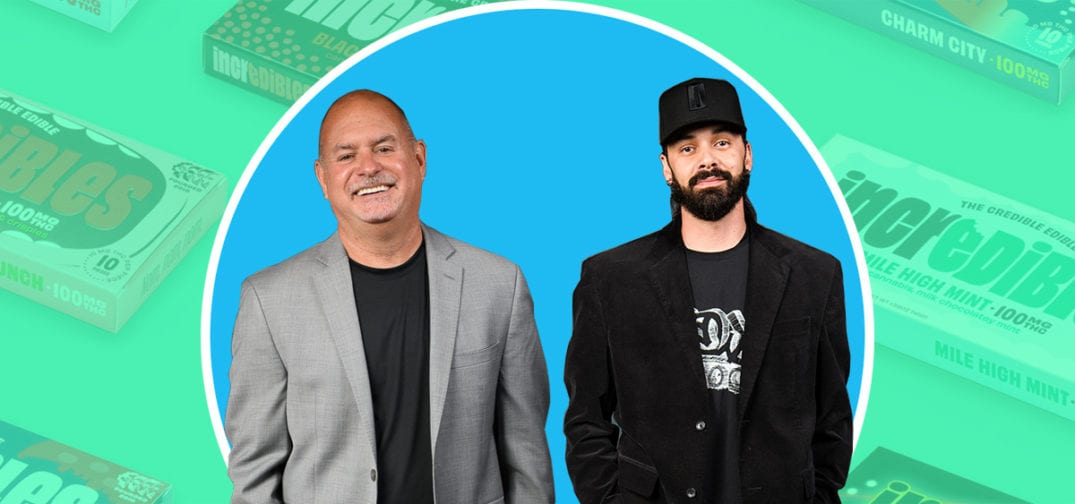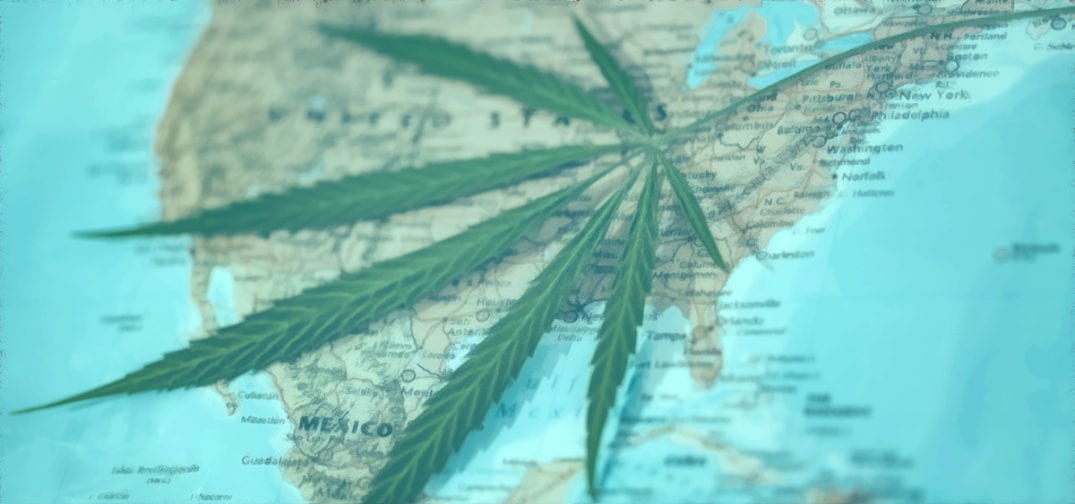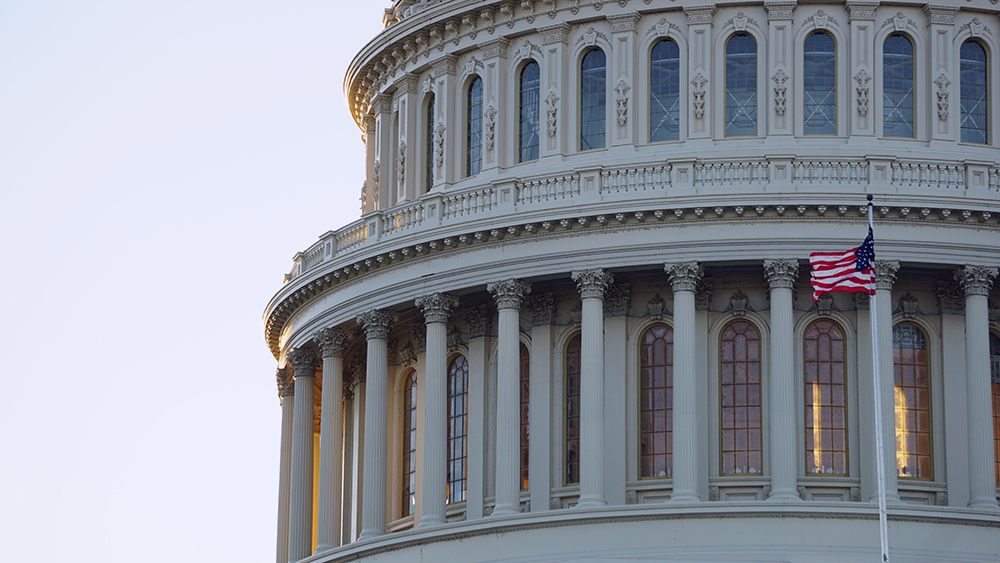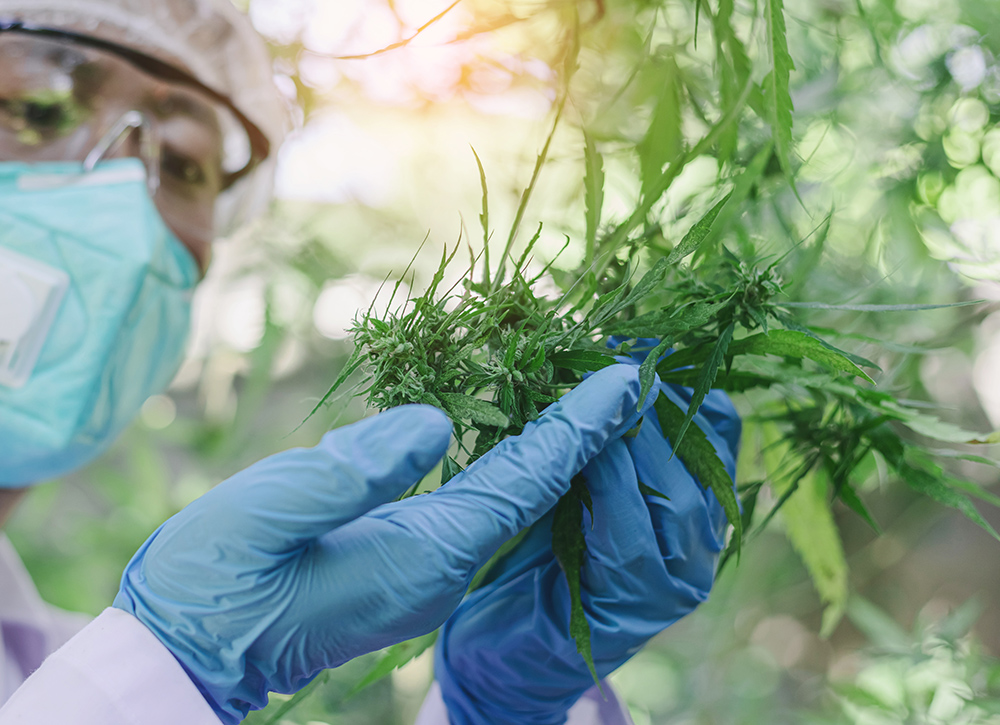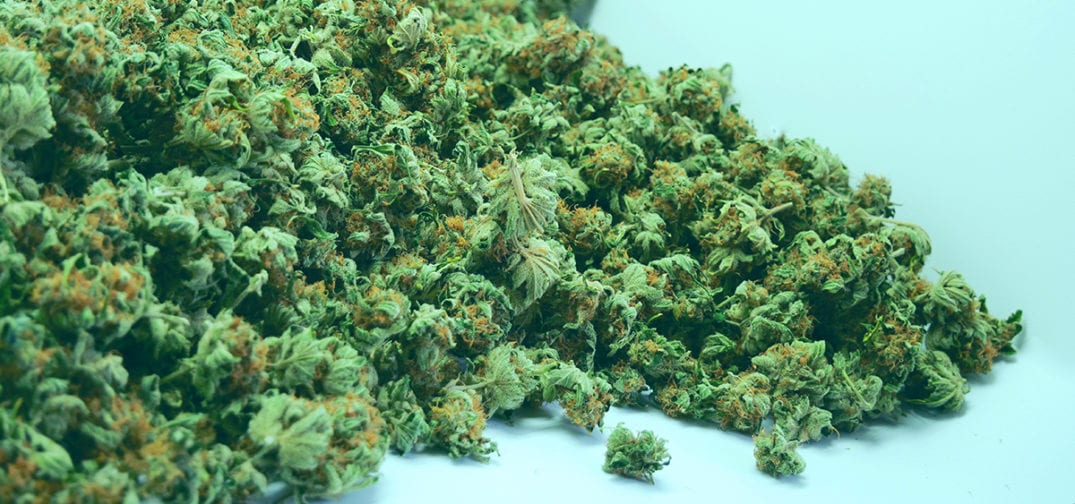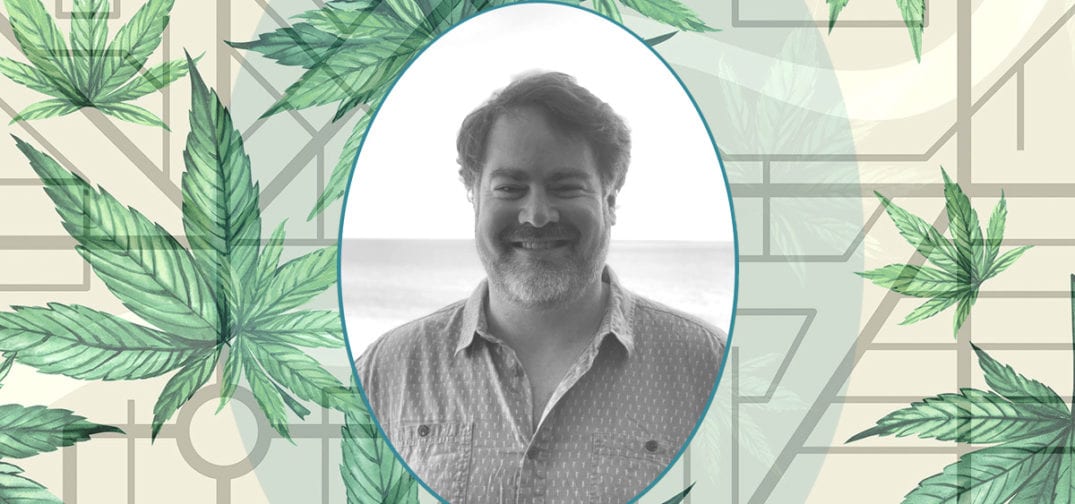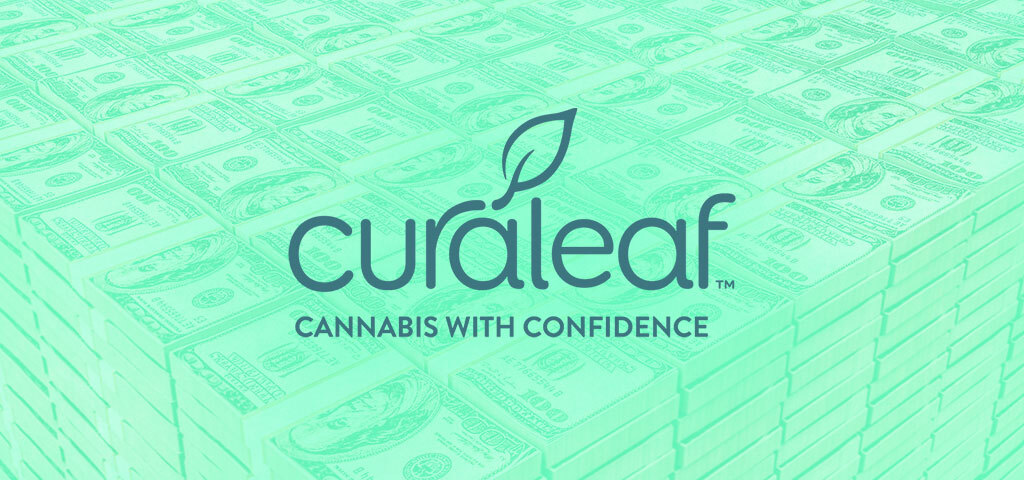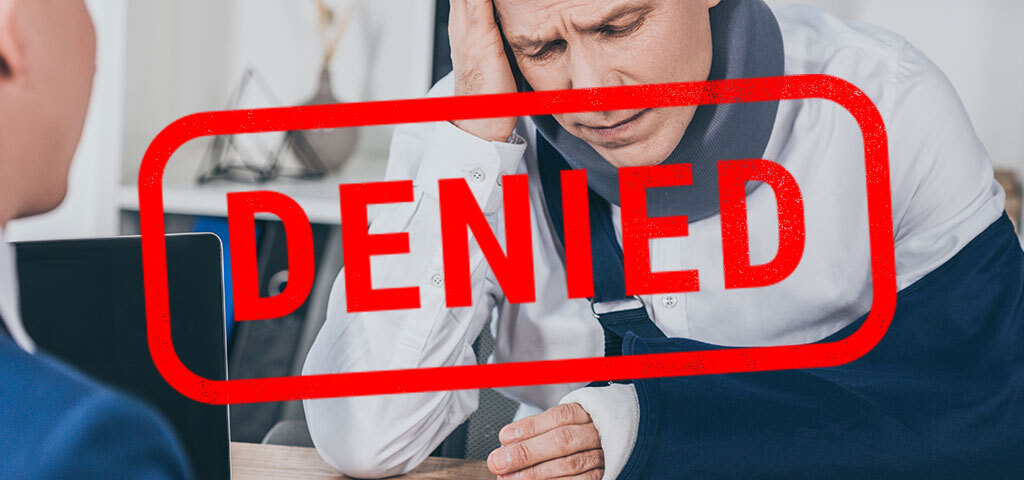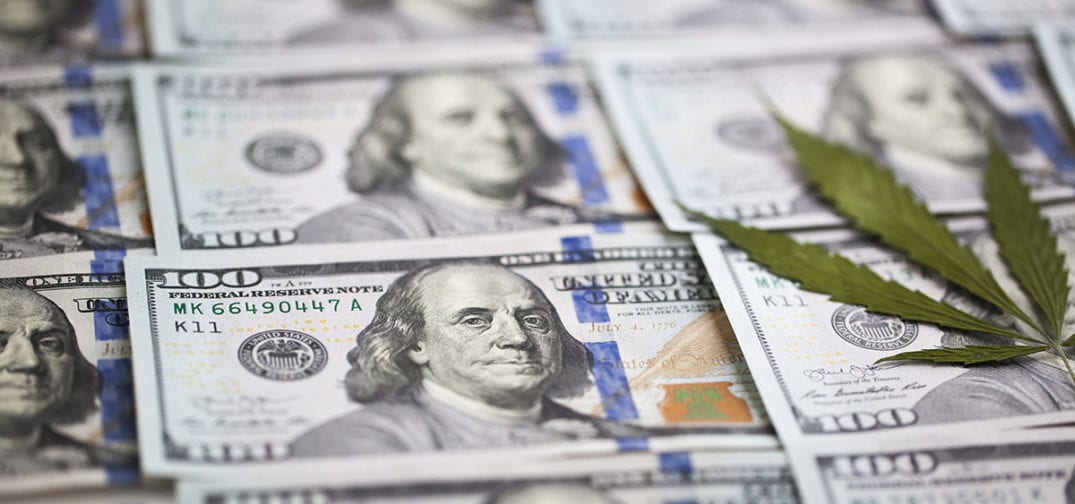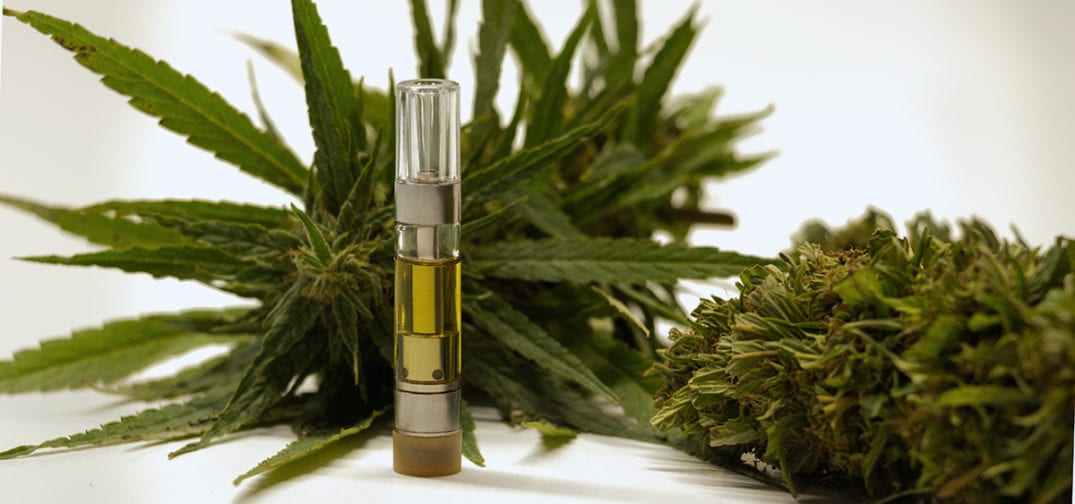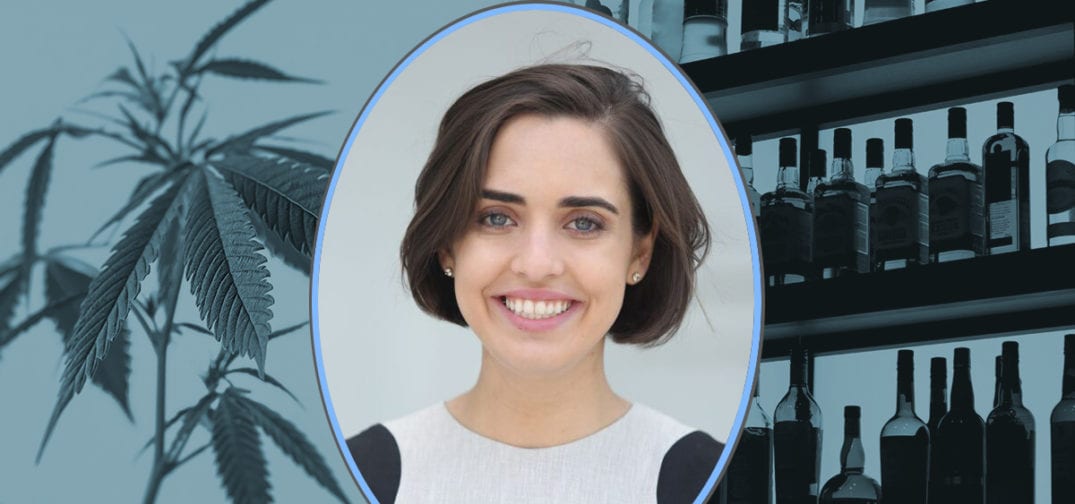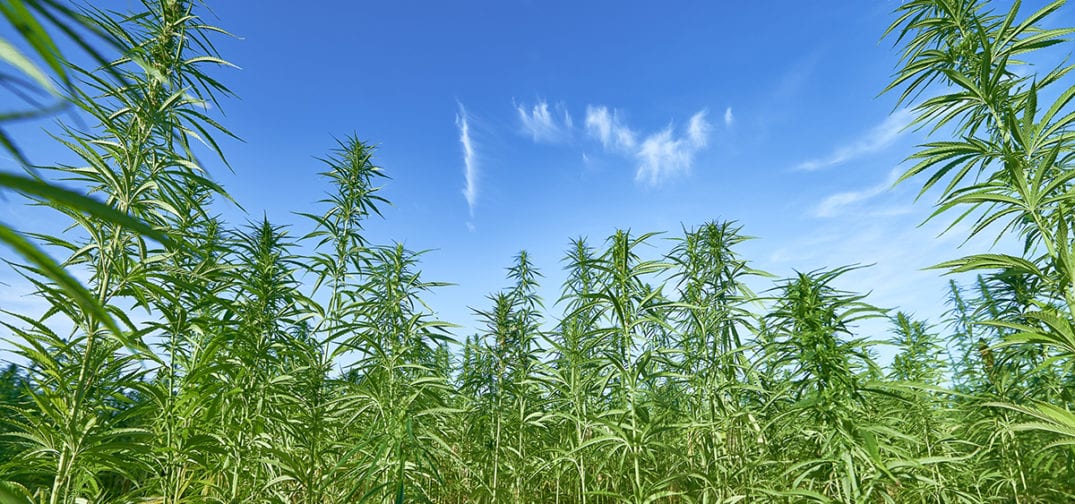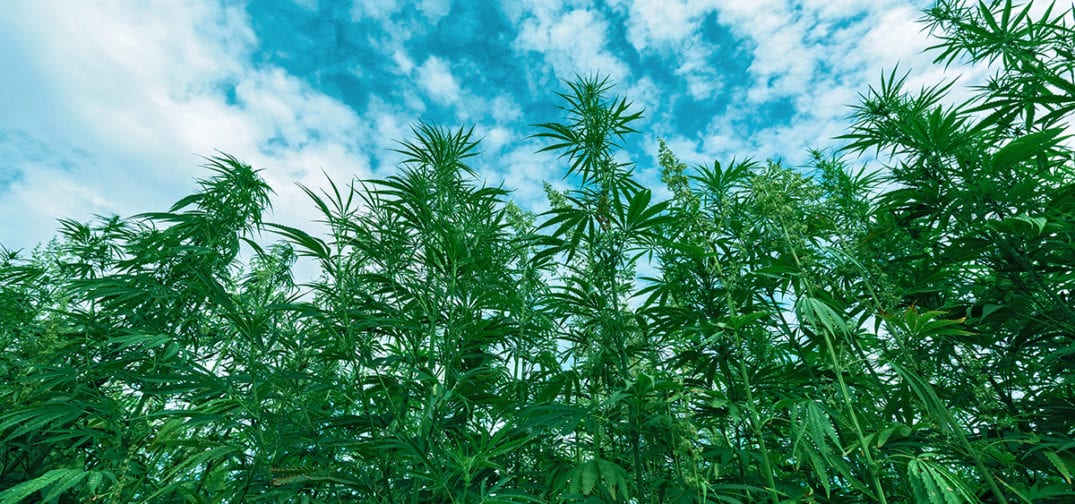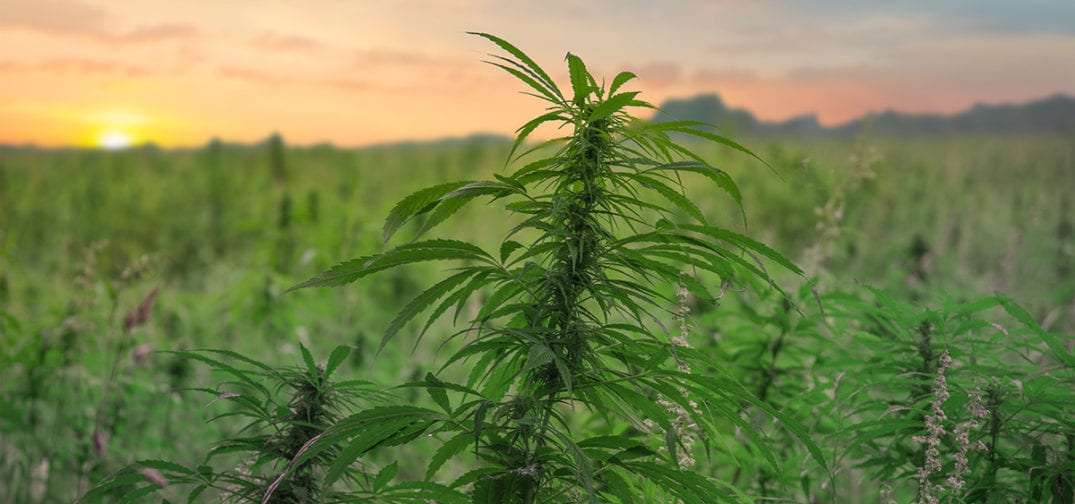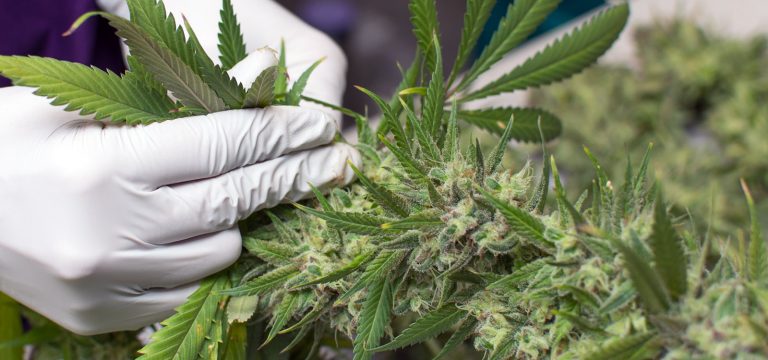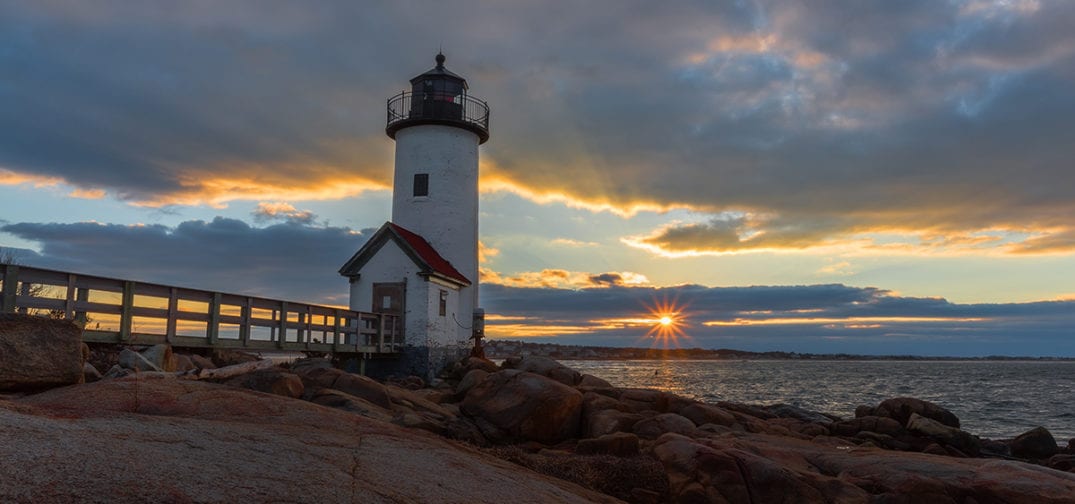In the notoriously turbulent cannabis industry, 10 years of continuous operation can feel like a lifetime. For the team behind Colorado’s Medically Correct, it’s the ultimate testament of their company’s success and longevity.
In this episode of the Ganjapreneur.com Podcast, Medically Correct co-founders Bob Eschino (who is also the company’s president) and Derek Cumings join our host TG Branfalt to discuss their various cannabis edibles brands, the early years of Colorado’s cannabis industry, and how they helped shape cannabis regulations in Colorado and (as other states came online) beyond. Tune in to hear about the trials and difficulties that led to the company’s founding; how a strong work ethic, an ever-present emphasis on compliance, and a continued focus on cannabis as medicine has driven their success; and more!
You can listen to the interview through the media player below or via your preferred podcast listening platform. Scroll down to read along with a full transcript.
Listen to the podcast:
Read the transcript:
Commercial: This episode of the Ganjapreneur Podcast is made possible by Dama Financial. Get access to a secure, transparent banking solution with Dama Financial. Secure your cash, make and receive electronic payments, and stop worrying that your account will be shut down for being a cannabis business. Protect your money with an FDIC-insured bank account and discover Dama’s suite of sustainable compliant financial products, including merchant processing. Schedule a free consultation at damafinancial.com today or call 877-401-3262. Dama Financial is an agent of its financial institutions.
TG Branfalt: Hey there. I’m your host, TG Branfalt, and thank you for listening to the Ganjapreneur.com podcast, where we try to bring you actionable information and normalize cannabis through the stories of ganjapreneurs, activists, and industry stakeholders. Today I’m joined by Bob Eschino, who is the co-founder and president, and Derek Cumings, co-founder of Medically Correct, a Colorado-based firm founded in 2010, whose brands include incredibles, Quiq, TruPura CBD, Clear Creek Extracts, and Nove, which is coming this winter. How you doing this afternoon guys?
Derek Cumings: Good, man.
Bob Eschino: Great, TG. Thanks for having us.
TG Branfalt: I’m really excited. You guys have so much experience to talk about. But before we get into that, man, tell me about your backgrounds and how you guys ended up in the cannabis space.
Bob Eschino: Go ahead, Derek. You start.
Derek Cumings: Me, personally, I was a patient, and to make a really long story short, I fell 45 or 50 feet, I broke both my legs, and then the pharmaceutical companies in combination with the doctors went for the all-time poisoning, so they had me up to about 20 pills a day and a dozen different prescriptions in my mid 20s. And I started using cannabis again in my life and basically, through escalated cannabis use, I was able to chip down every one of those prescriptions over about a two or three-year period.
And after I had the revelation of how much cannabis had helped me, and it was just because I had access, my mission sort of changed into giving other people access and putting that knowledge out there because there was nothing. I mean, you couldn’t find out information at the time. I sort of tiptoed into it myself and then was fully immersed, and then because of that I sort of wanted to help other people and get that knowledge out there because of the information blackout really at the time.
TG Branfalt: It’s unfortunate that we can’t hear that full long story, man, because, I mean it sounds like you’ve really been, hate to make the pun, but in the weeds with this on both sides.
Derek Cumings: Yeah. It was a trip to… I had like 300 or 400 doctor appointments and at some point in there I started telling them I didn’t want pills. I went from, “Hey. I’m going to take this tincture. I don’t want this anti-nausea pill anymore,” all the way up to, like graduated use, start smoking, and then all the way to start smoking hash, and then start smoking hash first thing in the morning instead of taking a morphine pill.
My doctor kept notes of the whole thing so when they tried to kick me out as a patient, the State of Colorado stepped in and said, “Hey. What happened here? You don’t have a lawyer.” It was all under a workers’ compensation case so they tried to kick me out for using cannabis after basically they had the notes that proved I was better off with it. So the State of Colorado stepped in and we worked out a settlement with the insurance company that would allow me to basically be in charge of my own healthcare through cannabis use. And like I said, once my parents knew, there wasn’t really any reason to hide from anybody else so that’s… As soon as my parents were cool with what was going on, I started going to town meetings and shit.
TG Branfalt: Wow. That’s fascinating, man. Bob, how about you, man? What’s your story?
Bob Eschino: I got into the cannabis industry through my grandmother. Back in 2009, my brother started making edibles for my grandmother, who was towards the end of her life. I watched it help her with sleep, pain, appetite. And as I was watching this unfold before my eyes, the light bulb went off. Same thing with Derek, I was like, “Holy shit. It’s medicine.” I had been a cannabis consumer most of my life but I never put the two together that it was medicinal. And even when I was using it, there was medicinal properties that I was getting. But watching it work for my grandmother, someone who would never touched cannabis and the topicals for her pain and… She’d eat a cookie and all of a sudden she had an appetite and her pain levels were dropping and she could sleep. Same sort of thing.
I sold packaging, and my partner, Rick, he ran one of the largest bakeries here in the State of Colorado. So everything we had talked about for little side businesses revolved around food and as I watched edibles working for my grandmother, I approached him and said, “Hey. Could we make an edible here in your kitchen?” At first he was reluctant, thought I was crazy, and then he came and he met my grandmother and he saw the healing properties of cannabis as well.
Right about that time, 12-84 came out, which was really the first framework here in Colorado that gave us a roadmap, some rules to follow, and as business people we looked at that and went, “Okay. They’re giving us rules. They are telling us if you do these things, you’re not going to get in trouble in the State of Colorado,” which brought us to a comfort level that we were both satisfied with. And we walked our happy little asses down and filled out an application and we were one of the first people in the country to have a license to make and sell legal cannabis in the US, which is pretty damn cool.
TG Branfalt: And you guys both come from that sort of compassionate background, right?
Bob Eschino: Yeah.
TG Branfalt: And we could sit here and talk all day about… I mean, I’m one of those people who use cannabis for years and years and years and then I start realizing, holy shit. I’m actually kind of using this more medically than I am recreationally. I still have a medical card in New York and that sort of thing, but I sort of digress. Tell me about these early days in Colorado and how you ended up leveraging that early experience to remain in business for this long. I mean, 10 years is a lifetime in this industry.
Derek Cumings: The truth is, I didn’t remain in business that long. My early days in Colorado stretch all the way back to George Bush presidency. Like I said, figuring it out for myself, understanding there was a small business aspect to it, so I started thinking, “Hey. I’m going to move back to my hometown. I’m going to make a small business out of this. This is really a states right thing.” I really got things going.
When my store opened up, there was only like five or six shops open at the time in Colorado. And we opened up in Harmony Wellness right on I-25. 10, 11 years ago, I had a billboard on I-25 that basically said, “$9 grams. Exit here,” and people’s minds were blown. But that was before that regulation that Bob was talking about. And when I opened up, I opened up as a good person and with a good business model and a vision to normalize cannabis back then. And what I didn’t foresee… When I opened, I thought of the eight or nine shops that were open, I thought four or five of them were going to have to close because of me. And when I opened up, everything was going according to plan. We did like almost $100,000 in business our first month in this tiny little shop. For instance, my town had a budget of like 1.1 million and that year I think we gave him like a $100,000, unsolicited tax money, from our shop that year.
Derek Cumings: When I opened, like I said, I thought all these people were going to close. And then Barack Obama became president, and all of a sudden it was like the flood gates opened, and instead of me closing a bunch of shops, people went into my shop openly with notebooks asking questions and shops literally started springing up all over. So we were in business about two years and that law shut down or it basically gave everybody the opportunity to opt out. And my town, of which I had government officials that were my patients and actually providing cannabis to my other patients for me, they just were sort of overwhelmed by a couple of the town board members and they were inundated with license applications in one week, so they shut it all down and they ended up closing me.
They kept saying, “Hey, it’s not you, but it’s all these other people,” and I’m like, “Yeah. I told you guys. We should’ve had rules.” Without that regulation, people just… It would’ve taken a while for the Wild Wild West to calm down. They were just tiptoeing into the legality of weed. The public didn’t have a stomach to let natural attrition happen from entrepreneurs making it and then it’s failing and so all those businesses got forced into the system.
And at the time I’d been making my own edibles, and my business partner was going to go do a doctor referral thing and I remember very specifically she said, she’s like, “You’re going to do your little edible thing?” And I was like, “Wow.” I just built all this up and you minimized everything. So I had that in my back pocket and was basically working as a consultant and taking meetings with different people for different reasons over gardening with one of my good buddies, Adam Dunn.
We happened to have a meeting with Rick and Bob, and they were making edibles, baked goods, out of this little kitchen. It piqued my interest that they had a kitchen and had the legit… they already had their license. All the shit that I had went through, they had got through all of that and they didn’t have a product. They were making popcorn and brownies, and albeit the best weed brownie I’d ever tasted. I already knew from having a shop that that was only going to last a couple of days. And for me to sell fresh baked goods at my shop was really hard, and it was my shop, so to try to add in their distribution and time for it to sit on another shelf, I knew right away that they had the mindset and the infrastructure to succeed but they had the wrong product line.
So I suggested that, “Hey. I made these candy bars for the last year of my dispensary.” I remember I set another meeting with them a couple days later and I went to my storage unit and I got candy bars that I had made about 9, 10 months earlier, and I brought them back to that meeting and was like, “Hey. The shelf life on your brownie, it’s already getting hard, but check out these chocolate bars.” And they’re like, “Oh, nice. When’d you make these?” I was like, “Last winter.” And I think the light bulb went off and I said, “What you should do is, ditch this idea of baked goods, make these candy bars. Switch over to BHO, an oil that’s easier to regulate or easier to dose into your products and let’s work something out.”
That was me meeting Rick and Bob and having that… I just dropped the mic. I said, “Hey. You guys should fuck this business, switch to edibles or switch to candy bars. I’m out. Figure it out.” And they wanted to buy my recipes and this and that and I was like, “No. It’s a bigger deal than that. Make me part of the thing and let’s figure it out.” And that led to about a eight-year handshake deal that we had before it was all finalized in the end, but that’s how we all came together and started the original chocolate line.
Bob Eschino: That’s right. Right about the time we met him, we were coming to the same realization that… Rick came from a bakery background. So as you’re making cookies, and brownies, and apricot bars, and carrot cake, and all of those things that we were going to do when we were making, you build in that waste. You build in throwing away 30% to 40% of your product because it’s going to go bad sitting on someone’s shelf. But once we came to the realization that we’re not throwing away around a brownie, we’re throwing away THC. We are throwing away medicine. That was right about the time the universe brought Derek into our door and went, “We’re turning it into an oil. It’s going to be more stable. We’re going to put it in more shelf-stable products,” and everything came together and off we went.
TG Branfalt: It’s a really unbelievable story.
Bob Eschino: It is.
TG Branfalt: In 2011, from what I’ve read, you guys were the first company to test all oil and batch products, in 2012, you were the first to add nutritional information, and in 2013 you added milligrams per dose to edible packaging, which none of this yet was a requirement. None of this was a state mandate. What led you guys to enact those policies without these government mandates?
Derek Cumings: One of the biggest drivers was, really just wanting to be truthful. It was at a time where I had started using oil because it was easier for me to understand… If somebody used a gram of the dirtiest hash oil in the world, their math started with a thousand milligrams. And I had a very good realization that this is not pure THC. So when we were doing calculations before testing, I was basing it on very unscientific thoughts, based on clarity, and taste, and this and that, but I could tell how good the oil was. I would put it between somewhere between 60%, 70%, 75%. The highest we ever went with anything would be like 80%.
And at the time, everybody else is just absolute bullshit. They’re selling, hey, this was weed butter that was made with a hundred milligrams of THC oil. And it was weed butter that they made a pound of butter with one gram of shitty hash, so the pound of butter, total only had like maybe 400, maybe 300 milligrams of THC and then they break that up into a thousand cookies and then they’re telling people that… It didn’t add up. Meanwhile, we’re making products based on the knowledge that, hey, this is only this much oil and we’re dosing it appropriately. So when that testing came out everyone was like, “The gig is up.” And with us, people had for years told us, “Your products are too strong,” and we were just saying, “No. We’re just truthful.”
And there was like a great awakening. When everybody else had this, come to Jesus with testing, it was more like, we got a better scope, and we were able to dial it in better. But we were already in the range to put it where people are like, “Wow. All products… All hundred milligrams are supposed to hit like this.” And that’s the truth. Instead of it being such a discrepancy, it was the equaling of the playing field when it came to other products.
There was product after product, after product, after product that tested. A 50 milligram gummy, 2.5 milligrams. Like there’s a 100 milligram brownie, it test as 11 milligrams. And in all of those testing, like I remember the big one that was done by the local news station, the big revelation with us was, “Oh, they’re too strong. Look. Their hundred milligram product is 112 milligrams.” And we’re like, “Yes.” Everyone else is being exposed and you’re doing a news story that’s basically telling everybody, yep, these guys are actually putting more. I’m like, “That’s a good one for us. That’s a free… Let’s use that as a commercial.”
Bob Eschino: Rick and Josh, who our other partners, they came from the bakery world. When we first started exploring this, when I did and Rick, when we started asking people about edibles, what we found is, most people were afraid of edibles. In Colorado, back in 2010, on the label it was one times, two times, three times strength. What the fuck does that mean? That’s how scientific it was. It meant nothing. Someone said, “Hey. This is extra strong. This is three times strength.” Well, what is strength? What does that mean? So when we started asking around and finding out that people weren’t testing and didn’t know how much of their most important ingredient they were putting in their products, that’s when a light bulb went off for us as well, which is, we’re selling THC. I’m not selling a chocolate bar, we’re not selling a brownie. We’re selling medicine, so we need to find out how much medicine we are putting in all of our products and that’s really where it all… It all started there.
Things like nutritionals. That’s just what they did. Rick and Josh put nutritionals in all of their products. Always. So we set up a bakery planning to be inspected. Planning for the health department to come in. Planning for the FDA to one day look at our packaging, and look at our nutritionals, and look at the process and be inspected. We just always waited. And I think it was three years before a health department official walked through our doors at the kitchen. Three years. And they came in and went, “Oh, shit. You have a HACCP plan?” “Yes, we have a HACCP plan. We’ve had a HACCP plan since we opened the doors three years ago. We’ve just been waiting for you to get here.”
So for us it was just normal. It was normal business. It was, we’re going to make a quality product. We’re going to tell people what we’re selling them, which was THC. And Derek and Josh became the experts on extraction and dosing and zeroing those things in to make sure that we were making accurate and consistent products. And once people realized that, hey, a square of this chocolate bar is going to do the same thing to me every time I take it, and I don’t have to be afraid of it because it’s going to be consistent, that’s when things… Our growth was exponential. Once people in our market realized what we were doing and how we were doing it and that we were putting out a consistent product that they could trust, the light bulb went on.
TG Branfalt: I want to ask each of you this sort of individually, but how challenging was that R&D period for you guys?
Derek Cumings: Well, for me specifically, it was a crazy time because I went from basically being a garbage man where I could get a free ounce of weed from one of my caregiver buddies if I dealt with taking their shit. Their stems and their trim, because that was just more hustle. If they didn’t have to go to the dump, better for them. So they would give me a little VIG in order to take care of that for them. And then I started doing my R&D and making my own little products. And then all of a sudden, the guys were like, “Hey. Why don’t we work something out on that?” And then it went to, “Hey. Why don’t you just buy this trim from me?” And I’m like, “Man, you used to pay me to take this.” Then it was free, now I have to pay you.
And then as we got into that relationship with Rick and Bob and other dispensaries, the price of R&D… I’ll be honest. I learned R&D on such a small scale because I had like one or two grams of oil and I’d be trying to make a new product. I remember… I don’t want to say anyone’s name, but one of their really experienced guys that had come from this kitchen world is in on the R&D now. And we’re having this meeting and he tells me that he needs some oil for R&D, I’m like, “Okay.” And I’m thinking about how I’ve done R&D in my life. I asked him how much he needed and he said, “I don’t know. A few quarts.” And I was like, “Dude. I don’t think you understand what the oil is, dude. We don’t have a few quartz in-house. I don’t know what you’re talking about.” So the ability to sort of scale up and do more R&D with more access to larger batches, it became fun.
And then also, all the things that Bob was talking about, those are the things that I saw right away. In our first meeting, Rick is telling me how Udi’s, they would make muffins for the Boulder County school district. He’d make something like [crosstalk 00:23:21]-
Bob Eschino: 40,000 a day.
Derek Cumings: 40,000 a day or something. And they all adhered to Michelle Obama’s recent nutritional guidelines. And in my head I’m like, “Man, these guys are going to have a better time sourcing ingredients, batching up the recipes.” Like specifically with the… I remember I had found the perfect strawberry to add. And it wasn’t a dried strawberry, it was a freeze-dried strawberry. It stayed crunchy in the chocolate. So I was all excited because I found this company that made these freeze-dried strawberries and they were the ones we had to go with. So when I’m introducing them to the strawberry crunch bar, we’re making it. I’m like, “Really, it’s got to be these strawberries.”
And I come back in a couple of weeks and they’ve not only found the distributor of the strawberries, they went to that distributor of the strawberries and they got the strawberries. And then the next update was, “Hey, guess what? We now got the strawberries from the strawberries strawberry guy and we cut a deal with them because we’re taking the bits and pieces instead of the full cut strawberries that go into the packaging, which saves us because then we don’t have to chop them up.” And I was like, “Man. These guys are not only using my strawberries, they’re using… They cut to the main source of the strawberries plus they’re getting a deal on it.” So all of those things got scaled up so big that R&D these days are a lot different. But I still like to think of things very individually. And if I’m thinking of a new product, I got to figure out how to make one before you make a thousand of them.
And a lot of times there’s hiccups in between there, where you have a product that might do great but it’s for a small scale operator because if you have huge distribution, you’re going to reach a maximum input point where you can’t jump to the next level. So there’s a bunch of great businesses that are set for small companies, but there’s products that large companies, if you have that distribution ring, you need to be able to churn out a million of them, not just a thousand of them. But if you’re trying to fill one store, a thousand of them is perfect. So if you know your height and where you’re trying to be, that’s the best way to judge. Even in R&D, that’s the best way to judge where you’re going, is try and aim for somewhere and start small.
Bob Eschino: But you have to be able to scale. We’ve got so many products that we don’t sell anymore because we can’t scale them. We couldn’t make them efficiently enough. What we’ve realized here in Colorado over the last decade, especially now more than ever, people are buying THC. They don’t care what you wrap it in. People don’t want to pay more than $15 for a hundred milligrams of THC. So I don’t care what you put. I don’t care if it’s in a brownie, a cookie, a chocolate bar wrapped in gold, I’m paying you 15 bucks. So you have to be able to make products that really hit the market and that the people will buy. Because I can make a $40, 100-milligram product, people aren’t going to buy it.
TG Branfalt: It’s probably delicious.
Bob Eschino: Oh, no, they’re great. Yeah. We have this sprouted seed, date-based nutritional bar that we used to make called …. People loved that thing. But we couldn’t make it efficiently enough. And then the new stamping rules and regulations came out and then we couldn’t make it. We couldn’t make it compliant with the state. So that’s one of those products that we would have loved to bring back out because people loved that thing but with the rules and regulations, and then the cost of materials going into it, it’s a product that… If we could bring it back out, we’ll probably only sell minimal amounts here in the state anymore.
TG Branfalt: You guys, your company had a role at the table when they were devising government regulations. And not a lot of people know what that experience is like, so the first thing I want to ask is, what was that experience like coming from the background that you came from and now sitting at the table… And you’ve already been sort of forward-thinking with nutritional information and milligrams per dose. Describe that early experience.
Derek Cumings: Before Bob talks about what it is and now and what it’s grown into, I would like to just highlight this one golden era of time, where people were actually genuinely, innocently ignorant and dying for the information. Because if you go back far enough… Like my first meetings, I had meetings with the City of Denver, with the fire department, the city planners, engineers. I’m explaining literally to a room of 30 people who are absolutely silent, just listening on how to use a closed loop extractor.
And that timeframe, from helping the fire department to the… I’ve worked hand-in-hand with the mayors of these towns, the town boards. Working with them when they all wanted to know, before everybody thought they fucking knew everything, was such a genuinely beautiful time, that I’m glad I participated then. Because now it got to be such an art just to be able to get in, get past everybody else that’s peddling bullshit to get your five minutes to be able to speak the truth to someone, or they would already have their own experts. It changed so fast and so rapidly that there was that one genuinely golden time where we got to go explain to the captive audience at the state house how a closed loop worked. And I swear to God, within 12 months, the government is selling their services as consultants to other states all around as experts and I’m like, “Wait minute. Where’s my cut?” Basically Bob made it so… I mean, all of those opportunities made it so I was going to pull my hair out and Bob made it so everybody would still listen. There you go.
Bob Eschino: That’s why I have no hair. Correct. And we learned very early on that if we weren’t sitting at the table, people were going to make rules and regulations for us. As that started to happen, we very quickly started to become more involved because you had to. Like Derek said, it was great for a lot of years, being able to help and being there as… You said it earlier, that Derek and I came from kind of the same place of wanting to help people.
10 years ago in Colorado, almost everybody with a license came from that place. There weren’t very many people who thought it was going to be a moneymaker, who thought they were going to get rich. It was people who had a personal story with the plant who went and got a license. And working with those people early on… I’m still friends with a lot of them today. We all just had our 10-year anniversary because we were all in that line together 10 years ago when we got our licenses. And to watch all of those companies grow and be successful and do what they wanted to do has been great for me and really cool for me to watch.
But sitting in the rooms with those types of people and talking with regulators, and government officials, and fire departments, and health departments, and really trying to do the right thing and trying to put regulations in place that not only protected the patients, but allowed us as businesses to be successful and then allowed the state to be successful, to regulate us. Because we were used to regulation coming from the bakery world. We wanted regulations for the industry so everybody was responsible. So everybody had to be professional. So the patients could get the products that they wanted.
Just like Derek said, there was a lot of people who were peddling bullshit. Who were selling 250 milligram products that had two milligrams of THC in it. And then you wonder why it’s not working for a patient, you wonder why a patient’s not getting healthy and they’re not getting some sort of relief. So, us being in a position to put the things in place that we put in place and do nutritionals and marking and stamping products and testing everything, those became the basic framework for what the MED did. Because they would see what we did, and went, “I want everybody to do that.” Everybody in the state should be doing that. They should be following those SOPs.
So the things that used to set us apart are now entry level in Colorado. If you’re not triple testing your products, you can’t get a license. If you’re not putting nutritionals, you can’t get a license. If you’re not marking and stamping, if you’re not a compliance company first in Colorado, you can’t get a license. So those are all the things that we started out doing and now, not only is Colorado kind of the pinnacle of that, it’s been the framework, unfortunately not well enough, but for the rest of the country.
So I traveled across the country for years trying to teach regulators what we had taught the regulators in Colorado is, here’s a good framework. Start with where Colorado is. It’s not perfect but it’s pretty damn good. And the frustrating part for me was, everybody thought they could do it better. And every state, nah, I’m not going to… We’re going to set our own rules and regulations because we’re going to do it better. And right now, Colorado in my mind is still the best for rules and regulations that not only protects the patients, it allows us to have a successful company and it allows the state rules to regulate us by. So they can come in and go, “Hey, you need to do this, this and this.” And if we do this, this, and this, we’re putting out products that are good for the patients.
TG Branfalt: Do you think that your experience, not only in the early days of Colorado but also in the state that sort of advises other states on legalization, do you think that that’s helped you adapt to different states as you’ve entered their markets?
Bob Eschino: Definitely. The reality is, is we’re a compliance company first. So when a new state opens, I don’t care what their rules are, I just want to be able to read them and understand them. And we have. We have walked into other states and said, “Here’s your rules. We’re going to follow these,” but we immediately get involved with trying to change those rules to make them smarter. To make the system better for the people in that state. Sometimes it works, sometimes it doesn’t. But it doesn’t matter to us. You tell us what the rules are and we’re going to follow them, because we don’t want to lose the license. We want to partner up with people in other states who see the same vision we do which is, you got to be compliant. If you’re not a compliance company first, you’re not going to have a license too long. So, as long as you’re working within the rules and frameworks of your state, we can make products. We can make products that patients will learn to love and trust. Just tell me what those rules are.
TG Branfalt: For you guys, which emerging market is most exciting? I mean, New Jersey, it’s going to vote next month, along with a couple other states that are Florida. No, not Florida. Maybe …
Bob Eschino: Florida just approved edibles so that’s going to be an exciting state for us. California is still going to be the Mecca as soon as they figure it out. Even with a terrible system, California right now is the 800 pound gorilla. They outsell every state and they haven’t figured it out yet. But I’m excited to see what happens with the East Coast, because I spent a lot of years up and down the East Coast where they were banning hydrocarbon extractions and banning edibles. Those are the things that we do. That’s what we do for a living, and everywhere up and down the East Coast, those things were getting banned. So I spent a lot of time and a lot of years out there trying to talk to regulators to make them understand that hydrocarbon extractions need to be done by licensed manufacturers. People who understand it.
They hear the horror stories about people open blasting in their basements and blowing up their mom’s house, and we go, “You’re right. That’s the scary part.” But if you don’t make it legal for me to do it or another manufacturer to do it in your state, every kid with a PVC pipe and a coffee filter is going to open blast in their mom’s basement. So the products don’t go away, you just need to put them into the hands of people who have something to lose and who want to do the right thing. So you need to be able to do extracts, you need to be able to do edibles, because if you don’t, people are making edibles at home. They’re not tested. They’re not dosed properly. They’re not packaged in child resistant opaque packages. They’re not marked and stamped for when they’re out of the packages.
So all of you states who are afraid of these things happening, if you don’t put rules and regulations in place to allow a manufacturer to do that, you’re creating your own problem, because now they have to be made at home by people who don’t have the expertise to do it and who aren’t following these rules and regulations, and then they’re selling them on Craigslist. They’re not checking IDs.
Our competition, which I have said for a decade now, is not other licensed manufacturers, it’s the black market, and the gray market. That’s our competition. You need to figure out a way to build a robust system in your state that entices people to come into regulated shops and buy things competitively priced against the black market. Not against other licensed dispensaries. Because everybody buying cannabis in an unlicensed state has an illegal guy in their phone. That’s who they’re using. So that’s my competition. And if I don’t give you a better product at a better price, that’s tested and clean in a safer environment to buy it in, they’re just going to keep calling the guy they’ve called for the last 10 years.
And regulators, it’s hard for them to hear that and it’s hard for them to understand that. We’re not creating a cannabis market, the cannabis market’s already in your state. Do you want to regulate it? Do you want to make it safer? Do you want to create jobs? Do you want to create tax revenue for your state? We can help you do that. That’s the ultimate goal, is to make those things happen. But you’re taking the business from people who already have the business. So if you make it so impossible…
I forget where I was, I think it might’ve been Maryland. I was looking at the licensing fees and all of the things that you needed to do to start a business. But do you understand that with your current patient count, just to open the door, just to pay for your licensing fees, I need to make $500 off of every patient before I even sell them a product.
TG Branfalt: Wow.
Bob Eschino: Then you’re already killing your market. You need to be able to make these things affordable for patients and to make these things affordable for the adult use market. The reason you don’t make liquor in your bathtub anymore is because you can walk to any store, get any flavor, any color, any potency, so inexpensively. It doesn’t make sense for you to try to make those things at home or to risk your freedom for what amounts to be a $15 an hour job. The allure is there’s still big money to be made in illegal states and until that changes, until there’s federal regulations or all the states become legal, it’s hard to have a real industry.
TG Branfalt: Derek, what’s your reaction when you hear or you see a news story about somebody who blows themselves up doing these home extractions and then you hear government regulators or politicians come out and demean or sort of demonize the process? What’s your reaction when you see that cycle?
Derek Cumings: There’s two reactions. One of them is, I want ignorant people to become educated people. I’m happy to dedicate my time to helping those people. Then there’s another reaction to the people that have been educated and they’re just assholes taking advantage of propaganda. Because the truth is, you never hear anything about Pfizer running into problems because somebody blew up a trailer park making meth. No one’s going after any of the pharmaceutical companies that produce Adderall or any of those other amphetamine-based products based on what happens with the meth houses on the corner. So because in people’s brains it’s still a short skip from weed to drug dealer, they just take it.
I mean, there’s a bunch of things in our industry that that’s the same thing, like regulatory takings, for example. When they just closed my business, they just said, “Peace out.” They didn’t give a shit that I owed people money, nothing. And in the real world if they did that, they would have to pay me to at least fair market value of what they closed. But because weed is still sort of just allowed, those things aren’t taken… it’s treated differently and unfairly, but that’s the truth. And there’s a normalization that’s happening across the board and eventually it’ll all shake out, but certainly the difference in the amount of time has been hard to live through.
Like there was a time when there was absolutely one video on YouTube about making hash oil. It was a Rick Simpson video where he basically poured naphtha out of a can that had a skull and crossbones onto it into a orange Home Depot bucket and stirred that shit up with a fucking dirty broom handle. At the time, I was part of a early marijuana podcast called John Doe Radio. We had these people saying, “You should make a video, Derek,” and I was like, “Fuck no, dude.” I knew this was a dangerous thing I was doing. I was scared every time because I was open blasting. And I’m like, “I’m not making a fucking video about this.” And I would go and search, and search, and then another video pops up. And it’s a classic, where these kids put a pan of alcohol-based hash oil on the fucking burner in their oven. The pan splits, the alcohol floods the burner, and the dude’s screaming, “My house is on fire. My house is on fire.” It was hilarious.
In a legal market, where regulation was encouraged, I came up with some ideas. I bought five or six closed loop systems. None of those companies wanted to listen to me as a maker so I end up making my own system. And the system that we made is still in use today. It’s used by five or six of the biggest hash companies in Colorado. It’s a passive unit that has no pumps or ancillary bullshit to go wrong with it. We just based it on simplicity and being able to keep running because we needed so much oil. And that’s why I said in the beginning I went and talked to the fire department. I was happy to help them.
And once somebody knows, they’re like, “Oh, my God. You think he was open blasting?” I still have people anytime there’s a fire or explosion they’re like, “Hey. Do you think this is open blasting?” And they’ll send me the news article and you can usually tell right away. Oftentimes in the newspaper picture, you’ll be able to see a telltale clue like, oh, this is going to be a BHO case. The kickback from it, it’s just unfair.
And like I said, if it’s somebody that’s just ignorant, when they learn they’re like, “Oh. It definitely should be regulated.” And if it’s somebody like Smart Moms, they already know and they’re just trying to use that story as propaganda to eliminate… There’s no putting toothpaste back in the tube. Just doesn’t go away. Like Bob was saying, it’s not going to… Just because you banned the… If you ban guns, only the fucking bad guys have guns. It’s not like anybody’s going to have a line for criminals to turn their shit in where they’re happy to say, “I heard these are no good anymore.” You’re just creating that opportunity. And sadly, you have a lot of…
Now, it’s even more dangerous because there’s a lot of illicit labs that are using closed loop systems that aren’t necessarily rated for a real market. There’s a couple of companies that that’s their entire job, and their existence in the cannabis space is determining which of these units are safe and which are not safe and certifying them as safe. And we got kids, they’re still in the homemade lab but they’re upgrading their equipment, but they’re not upgrading it to certified equipment.
And I’m almost more scared for those guys because they’re putting things under more pressure and they’re using more butane. The open blasting guys are sort of limited to a smaller amount. I’ve seen some accidents. There’s a terrible video of a closed loop accident, I think it was in New Mexico, that they used on the news and I’ve seen fire departments use it as propaganda and saying, “Look. closed loop still has problems.” Sure they had a closed loop system but if you watch the video carefully, the guy is using like a Wagner heat gun directly on the butane, and then when it blows up, he tries to run out the door and the door opens inwards. Immediately in my mind, I was like, “Dude. This isn’t a regulated situation.” This should be in a, you can’t use a heat gun. You can’t be in a doorway that comes inward. That’s definitely not a booth. They’re still using propaganda wrong.
Because the truth is, America, we cut our teeth doing dangerous shit. Going back into the 40s, 50s, and 60s, once we figure out how to do something, and then they make it safe. And it used to be, people had to die. This is the first case preemptively, they stepped in and they made all these regulations. We’re in like most, if not all, places where there’s regulated extraction, you’re under a Class I, Division 1 regulation, which is the most stringent environment regulation that you can get no matter what you’re doing. So if you’re following those rules, you’re, literally, at the very upper echelon of what OSHA and what federal regulations hold people expectant to. And I don’t think we have any deaths. So if you look back-
Bob Eschino: We haven’t even had a single explosion in Colorado in a licensed facility.
TG Branfalt: Really?
Bob Eschino: There hasn’t even been a severe accident, so-
Derek Cumings: And when you look at-
Bob Eschino: … we’ve done it correctly.
Derek Cumings: Yeah. When you look at industry, it’s a terrible tragedy, but it’s one that’s accepted because we need industry to keep moving. But if you look at how many people die in industrial accidents… We’re blessed that it’s been such a safe industry to work in but you need that groundwork. And there’s been places that said, “Oh. We’re going to leave that up to the people.” Nah. You can’t leave that up to the people, you just got to say, “Hey.”
And even in the beginning, people, they were wishy-washy between which way they were going to go. I was just openly advocating for them to give us a Class I, Division 1. Hey, just give us this because then everybody can achieve this level of compliance and that’s it. As a consultant, or a hash maker, or as a company, you need those concrete guidelines to be able to move forward. And especially if you’re trying to expand in other places, if you make things that are… I love it when they make universal regulations like, “Hey. Let’s just go with this Class I, Division 1 across the board.” I wish they would do it with things like every state has their own universal symbol. So there’s still some sort of… At some point, someone’s going to introduce federal regulation for universal cannabis guidelines but we have to get enough states on board and people behind that because you don’t want a whole mishmash of different regulations and I think we’re still trudging through those waters right now.
TG Branfalt: Well, I mean, it’s something they’re looking at. On the East Coast, the governors of Connecticut, and New Jersey, and Pennsylvania, and New York, have all gotten together and they sort of want to legalize all at once and end this whole thing. Anyway, we had to skip over a lot of stuff on this list. I definitely want to revisit this maybe with you guys individually at some point and get a little bit deeper into your stories because they’re so sort of unique and you guys have so much insight. But before we go, just briefly tell me what advice you guys would have for entrepreneurs.
Bob Eschino: I tell people whenever I speak, do the right thing. You’re a compliance company. If you’re not coming in to the cannabis space to follow the rules and do the right thing, don’t come. Because you’re not building a business, you’re building an industry. And I realized that eight, nine years ago, that people have literally given their lives and their freedom to get the ball into my hands. And my job is to not screw that up moving forward. My job is to make sure that the industry grows. That the industry moves forward in a responsible and respectful manner, because if it doesn’t, we’re not going to have cannabis be available across the country to patients.
Just like Derek was talking, you’ve got to do the right thing because every at-home explosion is a black eye for the industry. So we’ve got to pull those things out of the conversation. And we have to make sure that as an industry and as companies coming into this industry, that we’re doing the right thing so the next state can become legal. And so the country can become legal. So we can grow the industry to a point where patients can get their medication.
TG Branfalt: What about you, Derek? What do you say to entrepreneurs?
Derek Cumings: I would say… It used to be… My advice was more simple because I would just tell people keep your eye on the prize and be willing to grind and there’s no weekends. All of that. But everyone should already know that. If you have a dream and you want to make something work, those are the things that everybody that… If you are a true entrepreneur, you understand that hustle and you’re getting home from your job and you’re busting your ass until, I don’t know, if you have to feed your kids, or if you don’t have kids until you have to go to bed and you’re up late and you’re always on that grind. I hate to say it but even if you have that spirit, you still need to have a couple of things go your way. I would say you need to get lucky but a lot of times luck is just opportunity presented to somebody who’s prepared.
So I would say one of my best pieces of advice is pick your partners wisely because it’s rare that if you’re the entrepreneur, if you’re the idea guy, you probably don’t have the partners lined up or the backing, you just got your one little dream and you’re holding onto it or you’re doing it yourself, or you’re trying to move forward. You got to pick your partners wisely for where you want to go and what you want to do. A decade ago, I picked these guys out because I thought, “Hey, man. I had a dream at one point that my candy bars were going to make it into 7/11,” and then I got snuffed out completely. People tell me, “Man, you have a small piece of that pie over there,” and I’m like, “Dude, I would much rather have a small piece of this giant pie than my empty pie tin.”
I lost my opportunity and was sort of on the verge of… Several times in this weed thing, I’ve looked at it like, I’ve given up. I’ve wanted to give up like, “Oh, man, I missed it. I missed it.” And then I realize, oh, man, all we’re doing is still… Everybody’s still just warming up and jogging around the block and tying their shoes, getting ready for the marathon. Nobody missed anything yet. Still today. There’s still opportunity to really get out there.
But you got to pick people that you trust and that have the same sort of like goals in the beginning because, like I said, when I met these guys I pictured it being a nationwide brand and through these guys we’ve partnered up with everybody. All of the bigger fish above us that now are in the show. And incredibles will be one of the biggest brands ever and we’re working on these other brands and it’s just a playground now. But if I didn’t make a deal where I had to have faith that these guys were going to do the right thing… It took, like I said, eight years to work it out. And I see people that work on something for two months and they think that their time’s up. You got to put in time if you want something. I went from the state telling me I should just draw disability to, in my mind starting one of the most important brands in cannabis, and I couldn’t have done it if I didn’t have the right partners.
TG Branfalt: I’ve asked that question probably for three years now and it’s rare that you get sort of answers that are differently the same from people who have worked together for so long. I think that throughout this conversation it’s very apparent how passionate you guys are. Not just about the industry but the relationship to your brand and your company. I really want to thank you guys for being on the show. I really do hope that we can have another conversation, be it with you guys, or the other partners, or individually because, as I said, 10 years is a lifetime in this industry. You look at Maine, Vermont, they just come online, they just passed legalization sales, respectively, and a lot of those businesses aren’t going to be around in 10 years, and we know that, so congratulations on your longevity celebrating 10 years in a-
Bob Eschino: Thank you.
TG Branfalt: … very sort of strange industry. I definitely hope to have you guys on the show again and keep an eye on everything you’re doing.
Bob Eschino: And as these states go legal, we want to help. We’re looking for licensed partners. We can bring 10 years of experience to your licensed company to help you grow and to help you do the right things. That’s what we do now. We’re already established here in Colorado and we’re ready to take Nove, which is high-end filled chocolate, and our Quiq line which is fast-acting. We want to take those products to new states and we want to help people do the right thing and get medicine into patient’s hands. You can go to medicallycorrect.com and check out the website and see what we’re doing. It’s been great. Thanks for having us.
TG Branfalt: Bob Eschino is the co-founder and president, and Derek Cumings, the co-founder of Medically Correct, a Colorado-based firm whose brands include incredibles, Quiq, trupura CBD, Clear Creek Extracts, and Nove, which sounds delicious and is coming this winter.
Bob Eschino: It’s pretty good.
TG Branfalt: You can find more episodes of the Ganjapreneur.com podcast in the podcast section of Ganjapreneur.com on Spotify and in the Apple iTunes Store. On the Ganjapreneur.com website, you will find the latest cannabis news and cannabis jobs updated daily along with transcripts of this podcast. You can also download the Ganjapreneur.com app in iTunes and Google Play. This episode was engineered by Trim Media House. I’ve been your host, TG Branfalt.


